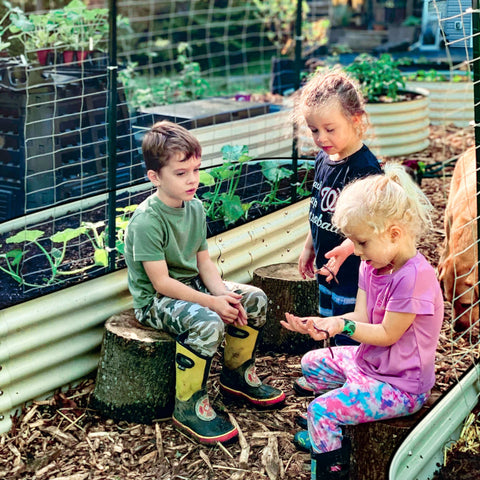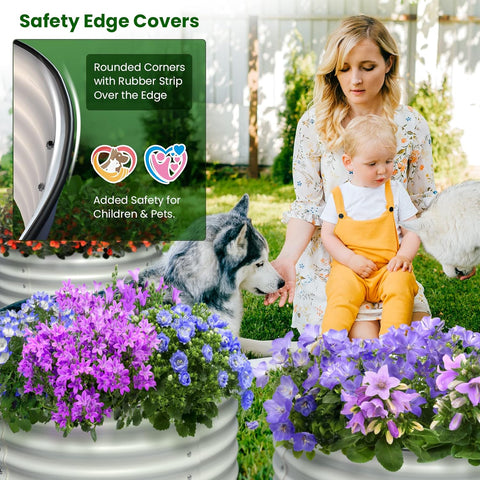Cultivating Connections: A Guide to Engaging Kids and Neighbors in Your Community Garden Program
Community gardens not only provide fresh and locally grown produce but also foster a sense of togetherness and environmental stewardship. To truly reap the benefits of a community garden, it's essential to involve everyone, including kids and neighbors. In this article, we'll explore creative and inclusive ways to engage the younger generation and build a stronger sense of community within your garden program.The following content also has some reference value for raised garden beds.
Educational Workshops for Kids:
- Start by organizing educational workshops tailored for children. Topics can range from the basics of gardening and plant life cycles to the importance of sustainable practices. Consider inviting local experts or experienced gardeners to share their knowledge in a fun and interactive way. Hands-on activities like seed planting, garden scavenger hunts, and bug identification can make learning enjoyable for kids.
Youth Gardening Clubs:
- Establishing a youth gardening club can be an excellent way to involve kids on a more regular basis. Plan weekly or monthly meetings where kids can participate in age-appropriate gardening tasks. Assign them their own plot or section within the community garden, allowing them to take ownership of their space and develop a sense of responsibility.
Community Garden Open Days:
- Host open days or events that showcase the beauty and benefits of the community garden. This is an opportunity to invite neighbors, friends, and other community members to tour the garden, enjoy tastings of freshly harvested produce, and learn about sustainable gardening practices. Ensure there are engaging activities for kids, such as face painting, storytelling, or crafting sessions.
Neighborhood Workshops for Adults:
- Offer workshops for adults in the neighborhood, covering various gardening techniques, composting, and sustainable living. A well-informed community will be more likely to actively participate in the garden program. Encourage parents to involve their children in the gardening process at home, fostering a connection between the garden and family life.
Inter-generational Gardening Days:
- Plan special gardening days that encourage interaction between different age groups. Pair experienced gardeners with kids or less-experienced neighbors to work together on specific projects. This not only promotes knowledge sharing but also strengthens the sense of community within the garden.
Seasonal Celebrations:
- Organize seasonal celebrations or festivals within the community garden. Whether it's a spring planting festival, a summer harvest party, or a fall clean-up event, these celebrations create opportunities for socializing and building connections. Incorporate games, music, and food to make the gatherings enjoyable for everyone.
Create a Community Garden Club:
- Establish a community garden club that meets regularly to discuss garden-related topics, share tips, and plan future activities. This club can serve as a platform for fostering a sense of community among neighbors while providing a space for ongoing collaboration and idea-sharing.
Conclusion:
Involving kids and neighbors in your community garden program is not just about growing vegetables; it's about cultivating relationships, fostering a love for nature, and building a sustainable community. By implementing these strategies, you can create a vibrant and inclusive garden space that benefits individuals of all ages and strengthens the bonds within your neighborhood. Together, let's sow the seeds of a greener, healthier, and more connected community.


